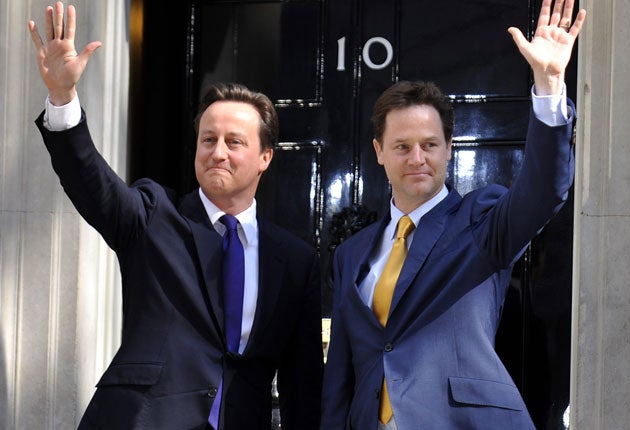Boris Johnson will decide when the next election is held
Repealing the Fixed-term Parliaments Act will give the PM the right to advise the sovereign to dissolve parliament and hold a general election, and that will not be a bad thing, writes John Rentoul


The Fixed-term Parliaments Act is dead. The government published a draft bill last week to repeal it and to restore to the prime minister of the day the right to advise the sovereign to dissolve parliament and hold a general election.
I think this is probably a good thing. The Fixed-term Parliaments Act (FTPA) was one of those attempts to codify the uncodified British constitution that had unintended and undesirable consequences.
No doubt, proponents of a written constitution would say that the FTPA was done wrongly because it was drawn up for party purposes, to reassure Nick Clegg that David Cameron would not cut the coalition short and dash to the polls. But it did show the dangers of meddling with conventions that have stood the test of time.
If it hadn’t been for the FTPA, Theresa May could have threatened Tory rebels with a general election. She could have made the first “meaningful vote” on her EU withdrawal agreement really meaningful by making it a vote of confidence – in other words, if the government lost it, there would be an election. But that option had been taken away by the FTPA, which set out the rules for holding an early election before the five-year fixed term was up.
What was worse was that those rules didn’t work. May was able to hold an early election in 2017 because Jeremy Corbyn agreed to it, so the two-thirds threshold in the FTPA was met. If Corbyn hadn’t agreed, May still had a contingency plan to do what Boris Johnson did two years later, which was to pass an early election act by a simple majority, which overrode the FTPA.
However, the FTPA still had the power to ensure that the 2017 parliament was deadlocked, because Johnson couldn’t hold a vote of confidence either, and for a long time it seemed that the opposition parties weren’t prepared to give him even a simple majority for an early election.
Two big questions about repealing the FTPA remain. One is whether the date of an election should be decided by a majority vote of the House of Commons, rather than by the prime minister. I have changed my mind about this and think that it should go back to the prime minister alone, giving them the power to make any vote a matter of confidence in the government.
Even so, the “statement of principles” accompanying the draft bill retains the mysterious ambiguity of the pre-FTPA situation, saying that a prime minister who loses such a vote “can either resign or seek a dissolution, which would usually be granted”. So there may be some circumstances in which the monarch would be advised to invite someone else to form a government and avoid an election.
The other question is how long the maximum period between elections should be. Before the FTPA the maximum was five years, but in practice it was more often four years (in eight postwar elections, as opposed to six going the full term). The FTPA was originally going to fix the parliamentary term at four years until George Osborne made a late change in coalition discussions and the Lib Dems, hearing the purr of the ministerial cars outside, readily agreed.
The draft bill goes back to setting the maximum at five and a bit years, requiring parliament to be dissolved five years after it first meets, after which an election would be held 25 working days later. As this parliament first met on 17 December last year, that would mean the next election could be at any time up to 28 January 2025. I think that is too long.
Yours,
John Rentoul
Chief political commentator



Join our commenting forum
Join thought-provoking conversations, follow other Independent readers and see their replies
Comments